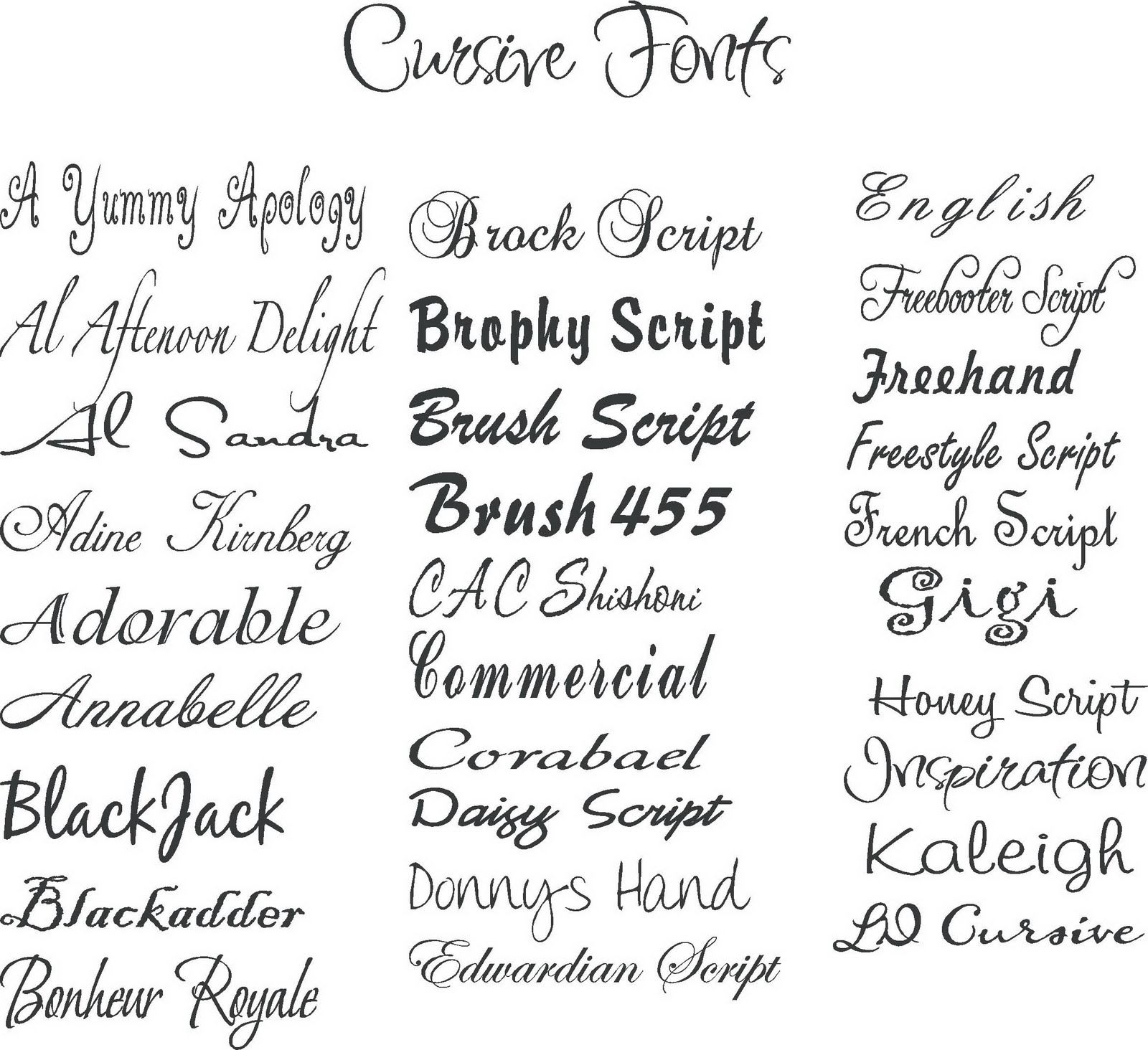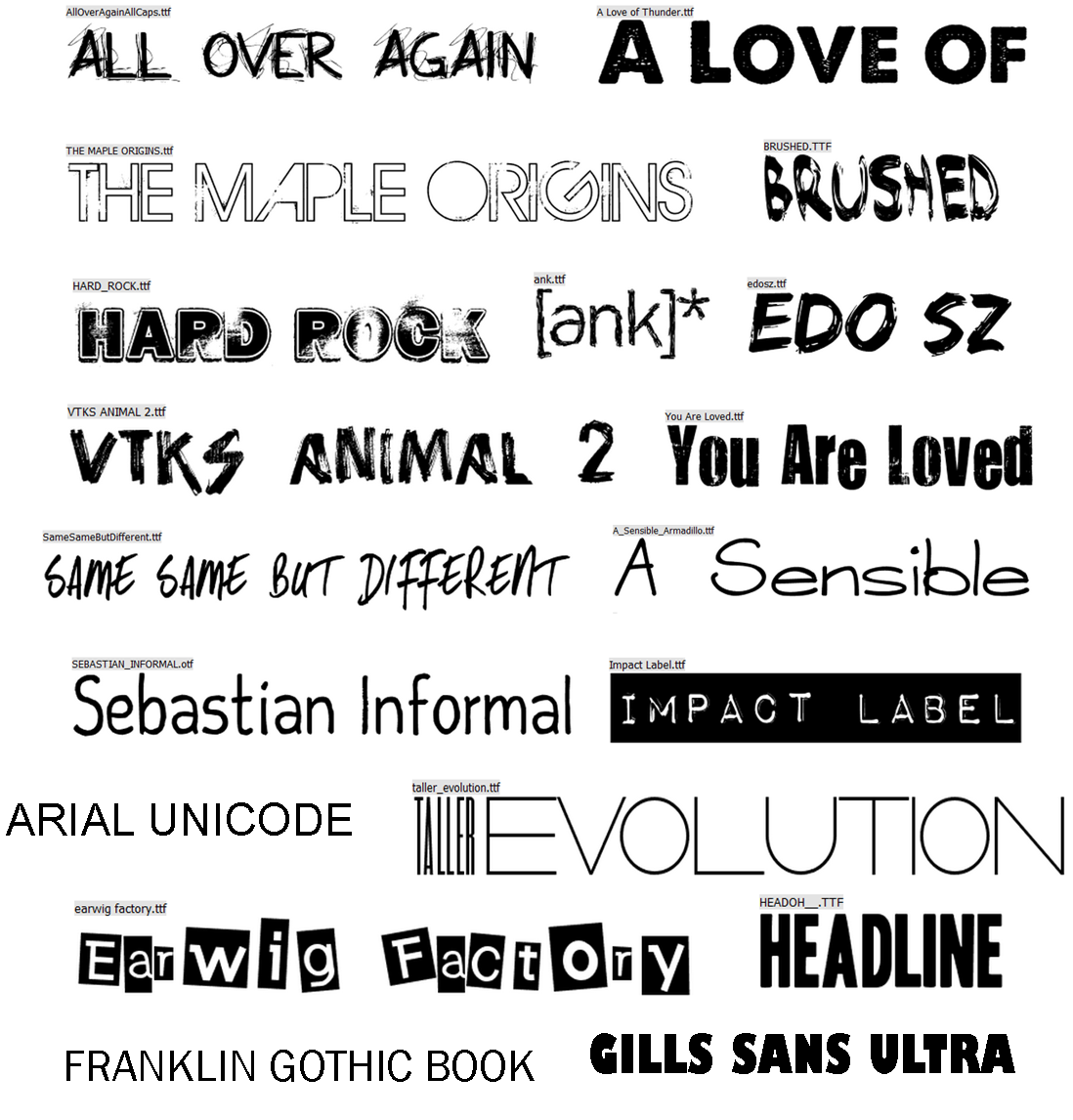Unlocking the Secrets of Font Types: A Deep Dive into Typography
Have you ever stopped to consider the letters you're reading right now? Not the words themselves, but the shapes they take, the subtle curves and angles that form each character? These shapes, collectively known as font types or typefaces, play a crucial, often unnoticed, role in how we perceive and interact with written information. They whisper messages beyond the words themselves, influencing our emotions, shaping our understanding, and even affecting our purchasing decisions. This journey into the world of font types will unveil their hidden power and equip you with the knowledge to harness their potential.
Font selection is more than just picking something that "looks good." It's about understanding the subtle nuances of each font type and how they contribute to the overall message. Think of it like choosing the right outfit for an occasion – you wouldn't wear a ball gown to a backyard barbecue, just as you wouldn't use a whimsical script font for a serious legal document. Different font classifications evoke different feelings and create different impressions, from the classic elegance of serif fonts to the modern minimalism of sans-serif types.
The history of font types is a fascinating tale that stretches back centuries. From the earliest carved inscriptions to the digital typefaces we use today, the evolution of fonts mirrors the evolution of communication itself. Each era has contributed its own distinct style, reflecting the cultural and technological advancements of the time. Understanding this history can provide valuable context for appreciating the nuances of different font families and how they've shaped the visual landscape of our world.
The importance of choosing the right font cannot be overstated. It affects readability, accessibility, and the overall user experience. Imagine trying to read a dense scientific article set in a decorative, curly script. It would be a nightmare! The right font choice ensures that your message is clear, legible, and easily digestible. It also contributes to the overall aesthetic appeal and professional presentation of your work, whether it's a website, a document, or a piece of printed material.
One of the main issues surrounding font types is the sheer overwhelming number of choices available. With thousands of fonts at our fingertips, it can be difficult to know where to start. This abundance, while offering incredible creative freedom, can also lead to analysis paralysis. Understanding the basic classifications of font types, such as serif, sans-serif, script, and display, can help narrow down the options and make informed decisions based on the specific needs of your project.
Definitions of Font Classifications:
Serif fonts: These fonts have small decorative strokes, called serifs, at the ends of each character. They are often perceived as traditional, elegant, and authoritative.
Sans-serif fonts: These fonts lack the decorative serifs, giving them a clean, modern, and minimalist look.
Script fonts: These fonts mimic handwriting and are often used for decorative purposes or to convey a sense of elegance or formality.
Display fonts: These fonts are designed to be eye-catching and are often used for headlines, logos, and other display purposes.
Benefits of Choosing the Right Font Type:
Enhanced Readability: A well-chosen font improves the readability of your text, making it easier for readers to understand and absorb the information.
Improved Brand Identity: Consistent use of specific font types can help establish and reinforce your brand identity, creating a cohesive and recognizable visual presence.
Enhanced User Experience: The right font choice contributes to a positive user experience by making content more accessible and visually appealing.
Advantages and Disadvantages of Different Font Types
| Font Type | Advantages | Disadvantages |
|---|---|---|
| Serif | Readability in print, classic appearance | Can appear dated online, not as legible at small sizes on screens |
| Sans-serif | Clean and modern, good readability on screens | Can lack personality, may be less readable for large blocks of print text |
Five Best Practices for Implementing Font Types:
1. Limit the number of fonts used in a single project.
2. Consider the context and target audience when choosing fonts.
3. Ensure sufficient contrast between the text and background colors.
4. Test different font sizes and line heights for optimal readability.
5. Use web-safe fonts for online projects.
Frequently Asked Questions about Font Types:
1. What is the difference between a font and a typeface? (A typeface is the design of the letters, while a font is a specific weight, width, and style within that typeface.)
2. How do I choose the right font for my website? (Consider your brand identity, target audience, and the overall tone of your website.)
3. What are web-safe fonts? (Web-safe fonts are fonts that are pre-installed on most operating systems.)
4. How many fonts should I use on my website? (It's generally recommended to use no more than two or three different fonts.)
5. What is font pairing? (Font pairing is the art of combining two or more fonts that complement each other.)
6. What are some common font file formats? (Common font file formats include TrueType (.ttf), OpenType (.otf), and Web Open Font Format (.woff)).
7. How can I embed fonts on my website? (You can embed fonts using CSS @font-face rule.)
8. Are there free font resources available? (Yes, there are many websites that offer free fonts for both personal and commercial use.)
Tips and Tricks for Working with Font Types:
Experiment with different font combinations to find what works best for your projects. Use online font preview tools to see how different fonts will look in different contexts. Pay attention to font licensing agreements when choosing fonts for commercial projects.
In conclusion, the world of font types is vast and complex, but understanding its fundamentals is crucial for effective communication and design. From the historical significance of different typefaces to their impact on readability and brand identity, font selection is a powerful tool that can shape how your message is perceived. By carefully considering the various factors discussed, from font classifications and best practices to accessibility concerns and the user experience, you can harness the power of typography to create visually appealing and effective communication across all platforms. Taking the time to learn about and implement these principles will not only enhance your designs but also elevate your overall communication skills. So, the next time you're working on a project, take a moment to appreciate the fonts you choose – they are more than just letters; they are the voice of your message.
The smooth operator unlocking the potential of energel 05 liquid gel ink
Ea fc 24 xbox price guide everything you need to know
Echoes of remembrance howe funeral home il obituaries online














